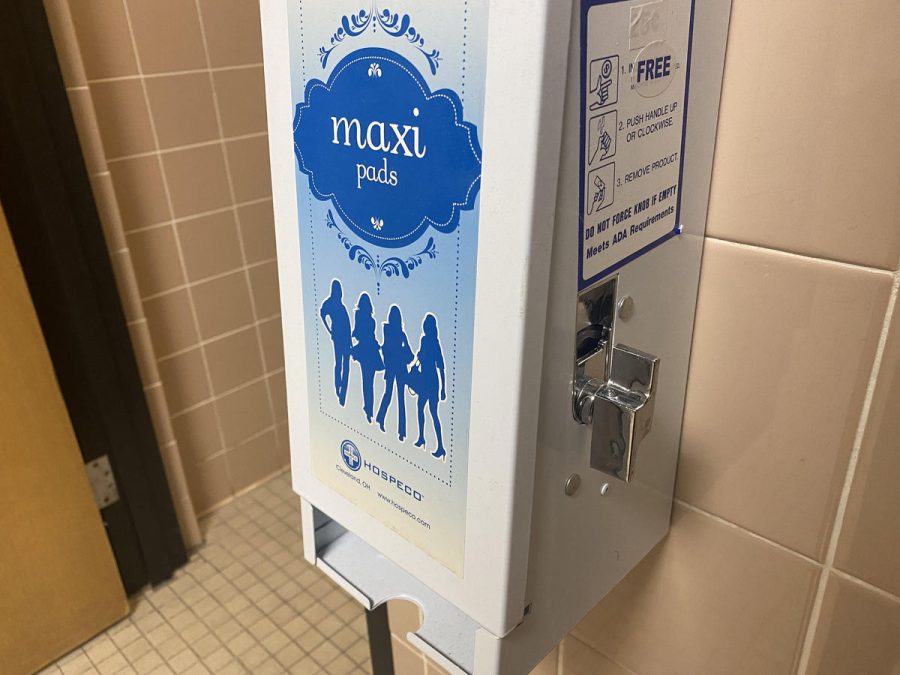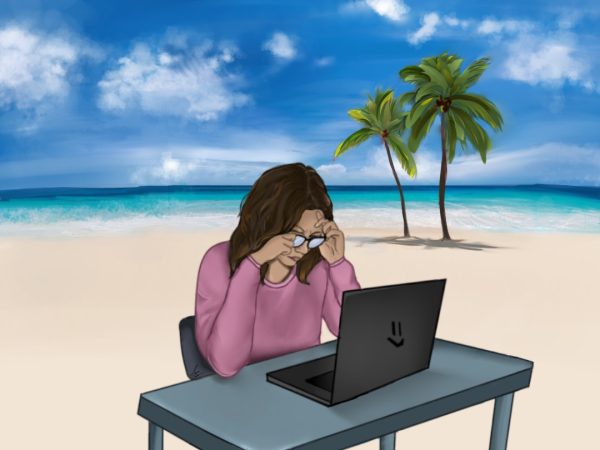OPINION: We need free menstrual products in our school bathrooms, period.
Our school bathrooms always have toilet paper in every stall. Why wouldn’t they? Toilet paper is a necessary item for everyday bodily functions. But somehow, when the same question is asked of menstrual products, people often don’t draw the connection.
Menstrual equity is defined as the affordability, accessibility and safety of menstrual products. It is gender-based discrimination disproportionately affecting women. According to a 2019 State of the Period study conducted by Thinx, a feminine hygiene company specializing in period underwear, and PERIOD, a nonprofit that is working to end the stigma around menstruation, 84 percent of students in the United States have either missed class or know someone who has because they did not have access to menstrual products. Furthermore, 1 in 4 students in the United States struggle to afford menstrual products or are unable to afford them at all. Having menstrual products in the school bathrooms would ensure that any student, regardless of economic status, has access to the products they need.
Menstruation is a normal part of human life, and one that desperately needs to be destigmatized. Periods are portrayed in the media and, in turn in our lives as “gross,” something to be kept secret and private. By having menstrual products readily available in our school bathrooms, West Essex could do its part in teaching the next generations that periods are a fact of life for most women.
From a logistical point of view, having menstrual products in the bathrooms just makes sense. A common excuse for not having menstrual products in our bathrooms is the fact that they can be found in the nurse’s office. What that fails to take into account is the size of our school. Imagine being in chemistry class, only to realize you need a pad or tampon. Now what could have been a simple trip across the hallway is a trek to the opposite side of the school and back. Students should not be losing valuable class time when this whole scenario could have been easily avoided with menstrual products in the bathrooms.
On top of the obvious spatial issues, having menstrual products readily available in the bathrooms would curb the anxiety and unpredictability that goes along with periods. Because of this narrative our society has created around periods, asking the nurse or even a friend for a pad or tampon is quite a daunting task. With a dispenser in each bathroom, students will know that they will never have to encounter the situation of having to ask for something that they really need. Plus, periods can be unpredictable. Some girls don’t know when a menstrual product might be needed. With the knowledge that there will always be a pad or tampon for a student to use comes the reassurance that you will be covered whenever and wherever your period comes.
To round out this argument, the Menstrual Equity for All Students Act has been introduced to the New Jersey Senate and Assembly. Senate bill S1221 and Assembly bill A1349 would, if enacted, “require school districts to provide feminine hygiene products in certain public schools and require the State to pay costs.” Bills similar to these have already passed in 16 states, and the likelihood of it passing in New Jersey is quite high. Why wouldn’t West Essex want to be ahead of the game and provide menstrual products for their students before it is required?
Our school is already halfway there. Dispensers have been installed in some of the bathrooms. But what good is that if they are all broken and haven’t been filled in who knows how long?
Periods are an everyday facet of life. Students who menstruate should be able to go into any bathroom in the school and feel confident that they will have everything they need, just like the students who do not menstruate feel right now. Having menstrual products in the bathrooms is more than having a pad or tampon at the ready. It’s a simple step toward menstrual equity and the destigmatization of periods. It’s time for free and accessible menstrual products in our school bathrooms, period.






